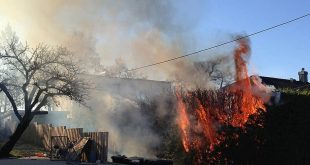Marie Bossard, a specialist in the social psychology of health, has been studying the feeling of preparedness among hospital staff in the face of exceptional health situations in her PhD since 2018. She explores the factors that may influence this feeling to better understand the dynamics of preparation in health systems. The Covid-19 crisis is a case in point: our …
Read More »Economics and Society
Circular economy, environmental assessment and environmental budgeting
To implement a robust and durable circular economy strategy, it is important to assess its environmental impacts. Valérie Laforest and Natacha Gondran, both researchers at Mines Saint-Étienne, explain the reasons for incorporating an absolute environmental sustainability assessment method and the underlying concept of “environmental budgeting“. The lifestyles of our contemporary societies are exerting constant and unsustainable pressure on the …
Read More »The Alicem app: a controversial digital authentication system
Laura Draetta, Télécom Paris – Institut Mines-Télécom and Valérie Fernandez, Télécom Paris – Institut Mines-Télécom Some digital innovations, although considered to be of general interest, are met with distrust. A responsible innovation approach could anticipate and prevent such confidence issues. “Alicem” is a case in point. Alicem is a smartphone app developed by the State to offer the French people …
Read More »Digital transformation: how to avoid missing out on the new phase of work that has begun
Aurélie Dudézert, Institut Mines-Télécom Business School and Florence Laval, IAE de Poitiers After a lockdown that has helped reveal how far along companies are in their digital transformation, the easing of lockdown measures has ushered in a new phase marked by a desire to return to “normal” activities, which is impossible due to changing health restrictions. Some organizations have therefore tried to use the …
Read More »Crisis management: better integration of citizens’ initiatives
Caroline Rizza, Télécom Paris – Institut Mines-Télécom As part of my research into the benefits of digital technologies in crisis management and in particular the digital skills of those involved in a crisis (whether institutions or grassroots citizens), I had the opportunity to shadow the Fire and Emergency Department of the Gard (SDIS) in Nîmes, from 9 to 23 April …
Read More »The end or beginning of third places?
After our homes and workplaces, the social environments in which we spend time are referred to as third places. These are places for gathering, adventures – but at the same time, of safety, security and control. In the following article Müge Özman[1], Mélissa Boudes[2], Cynthia Srnec (FESP-MGEN)[3], Nicolas Jullien[4] and Cédric Gossart[5], members of IMT’s INESS idea lab, explore our …
Read More »In French nursing homes, the Covid-19 crisis has revealed the detrimental effects of austerity policies
This article was originally published (in French) in the Conversation. By Laura Nirello, IMT Lille Douai, and Ilona Delouette, University of Lille. With apocalyptic accounts of conditions in French nursing homes, where deaths have soared (over 9,000 estimated as of 3 May 2020), the Covid-19 pandemic has revealed, more than ever, the hardships facing this sector. For years, care providers who …
Read More »Social media: the everyday sexism of advertising algorithms
Social media advertising algorithms can create paradoxical situations, where messages aimed at women are mostly displayed to men. These are the findings of successive research projects carried out by Grazia Cecere at the Institut Mines-Télécom Business School, in partnership with EPITECH, the University of Paris-Saclay and the MIT School of Management. The team has shed light on some of the mechanisms …
Read More »Wikipedia in the time of the Covid-19 crisis
Wikipedia provides freely reusable, objective and verifiable content that every citizen may modify and improve. It is difficult to achieve this aim when it comes to providing real-time information about a crisis marked by uncertainty, as is the case with the current Covid-19 epidemic. At Télécom Paris, Caroline Rizza, a researcher in information sciences, and Sandrine Bubendorff, a sociologist, have explored how crises are approached …
Read More »From solidarism to national solidarity: lessons of the epidemic
In this time of crisis, solidarity has been widely called for in response to the risk posed by the epidemic. In this article, Sophie Bretesché explores the historic origins of solidarity as a societal value. A sociologist at IMT Atlantique, she specializes in issues of risk and memory in relation to organizational change. In light of past epidemics and their …
Read More » I'MTech L'actualité scientifique et technologique de l'IMT
I'MTech L'actualité scientifique et technologique de l'IMT









